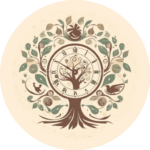In the 1920s, Virginia Woolf famously described how the history of women was unknown: ‘It has been common knowledge for ages that women exist, bear children, have no beards, and seldom go bald, but save in these respects […] we know little of them and have little evidence upon which to base our conclusions.’ Woolf was writing shortly after women were granted the vote in the UK (1918), after an arduous campaign by the suffragettes. This first feminist wave, associated with the political women’s suffrage movement, did not prompt historians to investigate women’s history with a few exceptions.
‘Neither, and yet both’: ‘Hermaphroditism’ and Binaries
It is estimated that between 1 and 2% of people have some kind of intersex variation and fall under the umbrella term of ‘sex variant’. (That’s around the same number of people who have red hair!) Yet, it is only in recent decades that intersex people have gained space in mainstream debates about equality and human rights. However, they have figured prominently in medical, religious, and legal arguments for centuries, serving as examples of competing ways of understanding gender and sex.
(Un)sexing, Violence, and Women
As she finds out the witches’ prophecy about Macbeth being crowned king and the current king’s imminent visit to their home, Lady Macbeth invokes evil spirits to help her be rid of her feminine qualities so that, together with Macbeth, she can murder the king:
- Page 2 of 2
- 1
- 2




